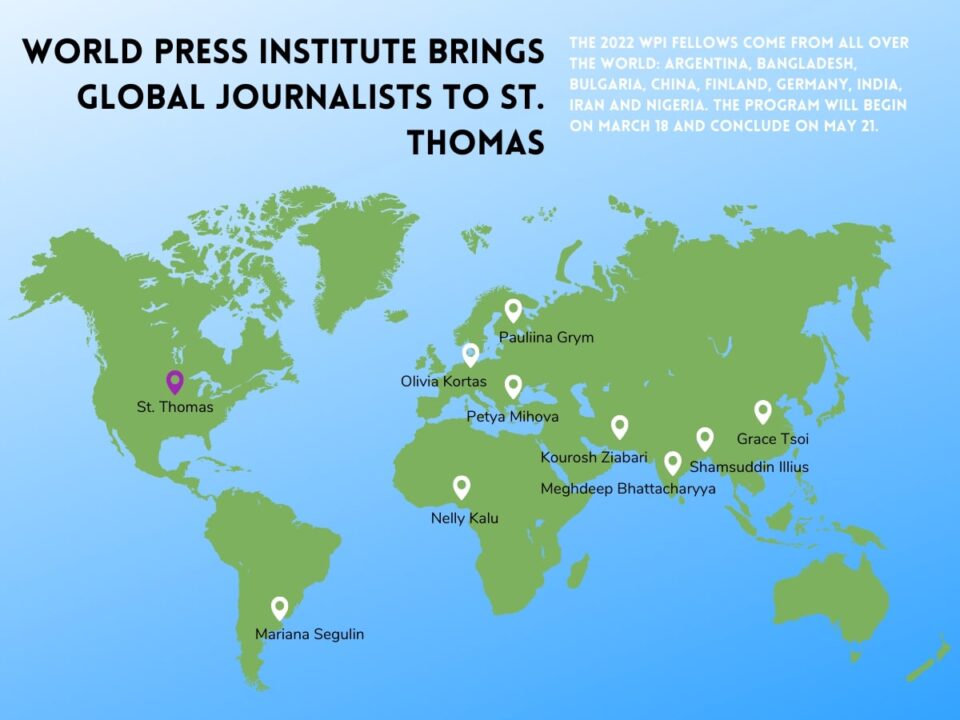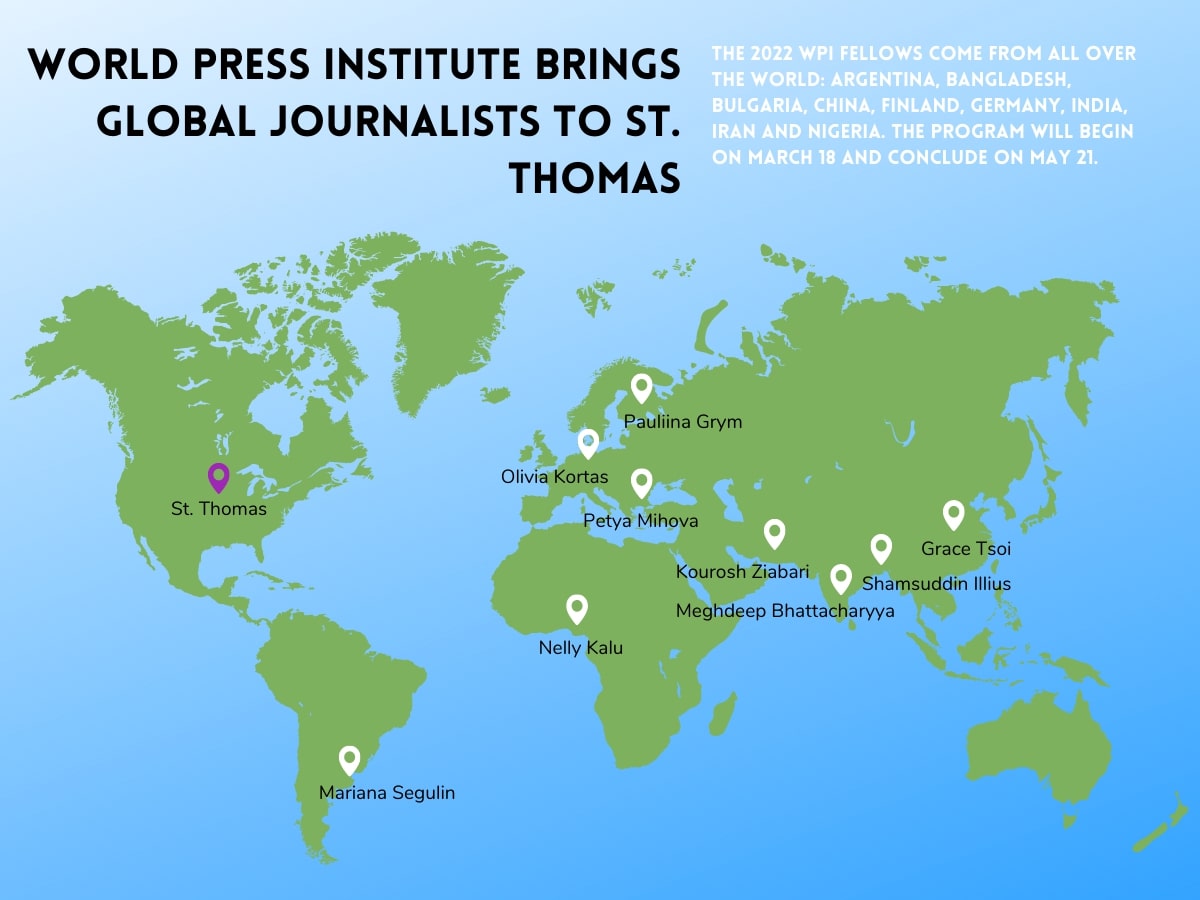
The World Press Institute will resume its 57th annual journalism fellowship program on March 18, which will house journalists at St. Thomas for three weeks before the fellows travel around the United States, ending May 21.
The institute released the names of nine journalists on Nov. 4. The 2022 WPI fellows come from all over the world: Argentina, Bangladesh, Bulgaria, China, Finland, Germany, India, Iran and Nigeria.
“The idea behind it is still the same; it was to bring these energetic journalists over here to expose them to what a vibrant free press is like,” WPI Executive Director David McDonald said.
The program will house the fellows in Frey Hall and a university-owned house on Summit Avenue. The fellows will be interacting with students while they stay on campus at the beginning of the program and at the end of their final week.
“They’ll eat with us and eat with our students and just hang out and meet people and write about them,” St. Thomas professor Mark Neuzil said.
McDonald highlighted the exposure to dynamic diversity established in the United States.
“The other theme is just to really expose them to the diversity of America – geographically, ethically – and we try to show them the good and the bad of America,” McDonald said.
The program will look to highlight political diversity in the United States, focusing on elections while traveling around the country.
“Every year we do something relating to the upcoming elections,” WPI Communications Director Kate Tovsen said. “This upcoming year, we will focus on the upcoming congressional elections.”
The fellows travel around the world, meeting with “journalists, policy experts, and political, business and community leaders,” the announcement states. The tour includes traveling from St. Paul to New York City, Washington, D.C., Miami, Austin, Chicago, San Francisco, Los Angeles and back to St. Paul. The fellows travel around the U.S. for five weeks.
“We go and meet at The New York Times with the editor in chief and the boss at The Wall Street Journal and The Washington Post,” McDonald said.
The themes of this year’s program include investigating issues of racial equity and police reform, nuclear threats and security, the upcoming U.S. congressional elections and new business models for journalism in the digital age.
“We’re pretty excited about the fact that it just makes sense that we’re going to have a theme on racial ethics and police reform, and it obviously makes a lot of sense with being in Minnesota,” McDonald said.
Both McDonald and Neuzil echoed the importance of starting the program in Minnesota, which solidified McDonald’s idea that “America is not a couple of big cities like New York or Washington that dominate.”
Minnesota’s “rich media landscape” also allows journalists to experience diverse types of media with their starting location in Minnesota, Tovsen said.
The program’s goal is to give the fellows experiences and knowledge to take back to their own country as they continue as journalists.
“We are trying to encourage and support the really good journalists and give them tools to do a better job of making their own governments and institutions more transparent – more understandable – for their people and to people in the world,” McDonald said.
Neuzil encouraged students to engage and interact with these fellows while they’re here.
“I’m just a big believer in international education,” Neuzil said. “I just think anytime you can get the opportunity to interact with other cultures, you should take it.”
Natalie Hoepner can be reached at hoep8497@stthomas.edu.

